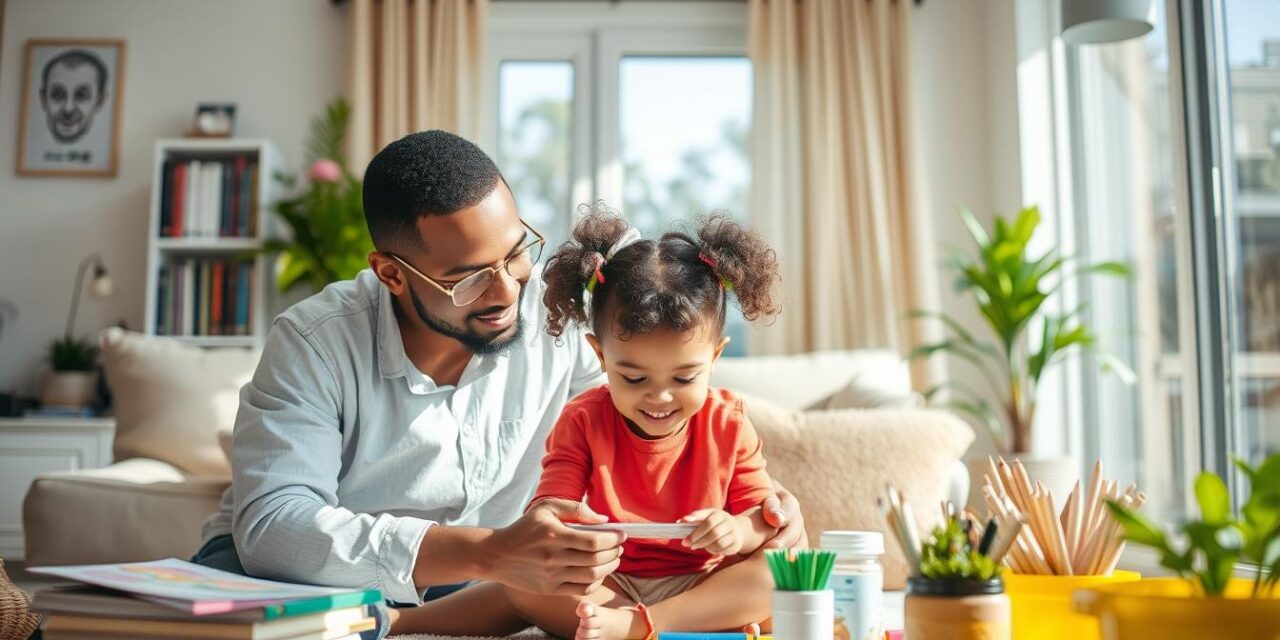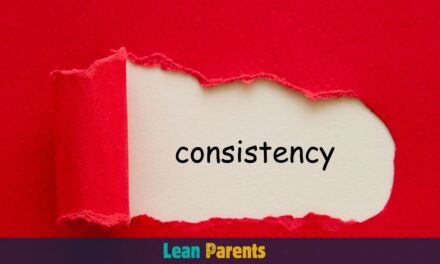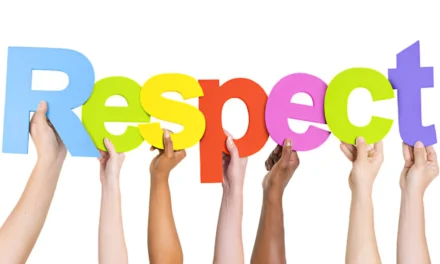As a parent, you want the best for your child. But, it’s easy to fall into negative parenting patterns. Recognizing these signs is the first step to change and build a strong parent-child bond.
Physical abuse, neglect, emotional abuse, and sexual abuse are the worst forms of bad parenting1. Neglect, where parents ignore basic needs, is also harmful1. Overly controlling parenting, or helicopter parenting, can also hurt a child’s learning1.
Bad parenting includes demanding blind obedience and using intimidation2. It also means being overly controlling and neglecting to correct bad behavior2. A clinical study defines bad parenting as failing to monitor behavior and excessive punishment2.
70% of children in poor households often lack quality education3. 30% of children with mentally ill parents may not get the care they need3. Children with explosive anger issues often have a strained relationship with their mothers3.
In this article, we’ll explore the signs of bad parenting and its effects. We’ll also discuss how to adopt positive parenting practices. By understanding these issues and making changes, you can create a nurturing environment for your child’s growth and strengthen your relationship.
Key Takeaways
- Recognize the signs of bad parenting, such as abuse, neglect, over-involvement, and strict discipline
- Understand the negative effects of bad parenting on children’s behavior, mental health, and relationships
- Learn positive parenting strategies, including open communication, consistent discipline, and a supportive environment
- Engage in self-reflection and personal growth to break the cycle of negative parenting behaviors
- Seek help and support when needed to improve parenting skills and foster a healthy parent-child relationship
Understanding Bad Parenting
Bad parenting can deeply affect a child’s growth and happiness. It’s key to understand what bad parenting is, both clinically and broadly.
Clinical Definition of Bad Parenting
From a clinical view, bad parenting means parental actions that lead to kids acting out. This includes not watching, noticing, or stopping bad behavior on time. Parents who don’t guide and discipline right can create a space for bad behavior to grow4.
Also, bad parenting clinically includes physical, emotional, and sexual abuse, plus physical and emotional neglect. These can badly hurt a child’s mind, self-worth, and growth4.
Comprehensive Definition of Bad Parenting
A broader view of bad parenting goes beyond just abuse and neglect. It also covers parenting styles and actions that put the parent’s needs before the child’s. This can show up in many ways, like:
- Being too strict or too lenient, making kids feel unsure and worried4
- Being too protective, stopping kids from growing independent and self-sufficient4
- Not spending enough quality time with kids, hurting emotional bonding5
- Putting personal goals or pride above what’s best for the child5
| Parenting Style | Characteristics | Potential Consequences |
|---|---|---|
| Authoritarian | Strict rules, little warmth | Aggression, low self-esteem |
| Permissive | Few rules, high responsiveness | Impulsivity, lack of self-control |
| Uninvolved | Low demandingness and responsiveness | Poor academic performance, behavioral issues |
Bad parenting can come from many places, like drug use, mental health problems, poverty, and broken homes5. Knowing why helps us find ways to help parents and kids.
“The way we talk to our children becomes their inner voice.” – Peggy O’Mara
By tackling the reasons behind dysfunctional parenting and pushing for positive parenting, we can help kids grow up happy and well-adjusted.
Child Abuse and Neglect

Child abuse and neglect are serious issues that harm a child’s growth and happiness. It’s important to know the signs of abuse and act to keep the child safe. Abuse isn’t just hitting a child; it also includes ignoring them, putting them in danger, or exposing them to sexual situations6.
Most abusers are family members or close friends6. Factors that increase the risk of abuse include domestic violence, drug use, and untreated mental health issues6. Knowing these risks helps us prevent abuse.
Physical Abuse
Physical abuse happens when someone hurts a child on purpose or too much6. Signs include unexplained injuries, poor hygiene, and sudden changes in behavior6. If you suspect abuse, tell the authorities to keep the child safe.
Emotional Abuse
Emotional abuse hurts a child’s mind and social skills6. It can cause anxiety, depression, and health problems later7. Look for signs like withdrawal, low energy, and poor school performance7.
Sexual Abuse
Sexual abuse can happen without touching and can make children feel ashamed and guilty6. Signs include knowing too much about sex and sudden behavior changes6. Believe children who say they’ve been abused and act fast to protect them.
Physical and Emotional Neglect
Neglect is a common abuse that’s hard to spot6. It’s the most common abuse in the U.S., making up 78% of cases7. Neglect can harm a child’s brain and increase the risk of problems like attention and emotional issues7.
| Type of Abuse | Percentage of Cases |
|---|---|
| Neglect | 78% |
| Physical Abuse | 17% |
| Sexual Abuse | 9% |
| Psychological Abuse | 8% |
Helping a child after neglect is crucial, but just removing them isn’t enough7. We need to keep supporting them to help them heal from abuse and neglect.
Overly Strict or Controlling Parenting
Overly strict or controlling parenting, also known as authoritarian parenting, demands total obedience from kids. It uses fear to control them. In contrast, authoritative parenting balances high expectations with emotional support, leading to better outcomes for kids8.
Strict parenting can harm kids’ school performance and make them more anxious and depressed8. Children raised this way often struggle with anger, aggression, and rebellion9. It also limits their ability to make decisions and lowers their self-esteem8.
Demanding Blind Obedience
Authoritarian parents often punish kids for not following orders without feedback10. This can make kids obedient but also less social and more likely to blame themselves10. Strict parenting can also hurt the relationship between parent and child9.
Using Intimidation as Discipline
Intimidation as discipline can harm a child’s emotional health. Kids raised this way may feel depressed and struggle with emotional control9. These dynamics can also lead to problems with friends and future relationships9.
While strict parenting might get kids to follow rules, it’s not good for their long-term well-being. A mix of clear rules and emotional support can create a better relationship and help kids grow positively.
Lack of Discipline and Boundaries
Permissive and uninvolved parenting often means no discipline at home. Without consistent monitoring and addressing bad behavior, kids can face big problems. This can even lead to delinquency1112.
Failing to Monitor Child’s Behavior
Many parents find it hard to set and enforce rules. This can confuse kids and make them think rules don’t matter11. A survey of 3,000 parents showed they wish they were more consistent in parenting12.
Not Recognizing or Addressing Deviant Behavior
It’s key to have clear rules and consequences for kids. Ignoring bad behavior can confuse and upset teenagers12. Teaching honesty, obedience, and respect is important for their development12.
Good parenting means being empathetic and connected. It’s about understanding feelings before setting consequences. This keeps the relationship strong11. Encouraging kids to follow rules helps them grow up right. Regularly checking family rules helps them stay fair and build character12.
Prioritizing Personal Interests Over Child’s Well-being

When parents focus more on their own interests than their children’s needs, it’s harmful. This selfish parenting can lead to neglect. Parents might spend too much time on hobbies or work, ignoring their child’s emotional and physical needs. Fear and control can also stop a child from growing and exploring.
Good child-centered parenting means finding a balance. A study in the Washington Post shows that quality time is more important than how much time you spend together13. To spend more quality time, try putting your phone away, turning off the TV, and reviewing activities that don’t add value to your family time13.
Ignoring parental responsibilities can harm a child’s emotional and social growth. Children might feel unloved or unimportant. This can lead to low self-esteem, behavioral issues, and trouble forming healthy relationships.
A good parent is someone who establishes boundaries while displaying love and compassion towards their children13.
To focus on the child’s best interests, parents need to make sacrifices. This might mean working less, sharing tasks, or getting help from family and friends. By putting their child first, parents create a supportive environment for their child’s growth and happiness.
| Selfish Parenting | Child-Centered Parenting |
|---|---|
| Prioritizes personal interests | Prioritizes child’s well-being |
| Ignores child’s emotional needs | Attends to child’s emotional needs |
| Focuses on quantity of time | Focuses on quality of time |
| Can lead to behavioral problems | Promotes healthy development |
Emotional Invalidation and Neglect
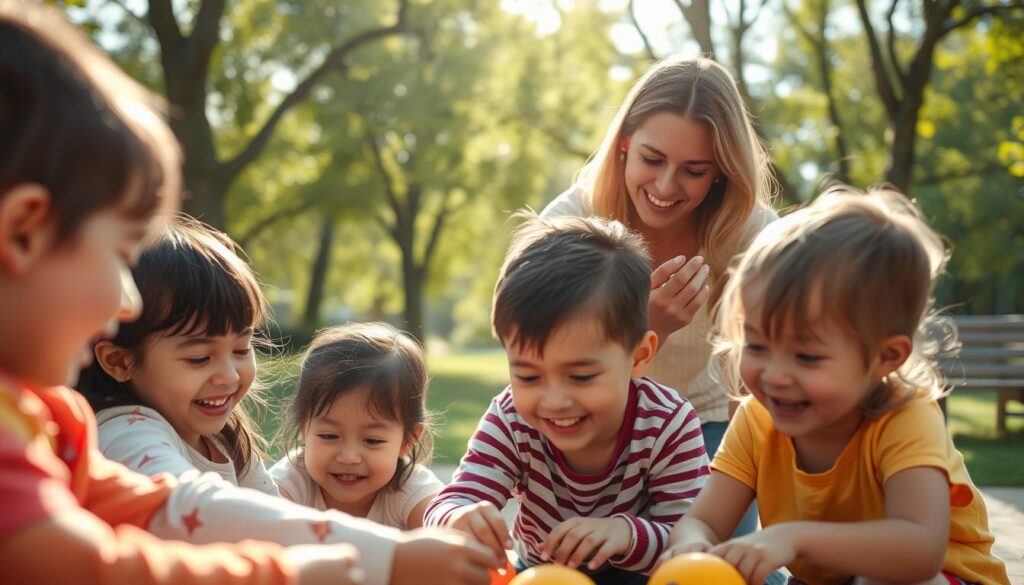
Emotional validation is key for kids’ emotional health and growth14. When parents don’t acknowledge or respond to a child’s feelings, it can cause emotional neglect in childhood (CEN)1415. Many people have grown up with CEN, which can be passive or active, affecting kids differently15.
Parents teach kids how to handle their emotions14. Passive neglect means ignoring feelings, having shallow talks, and not guiding after mistakes1516. Active invalidation includes sending a child away for showing negative emotions, belittling their feelings, and rejecting their emotional needs1516.
Childhood emotional invalidation can make it hard to express feelings and lower self-esteem.14 Kids who aren’t emotionally validated might feel unloved or unworthy14. CEN’s effects last into adulthood, causing self-blame, hidden pain, harsh self-treatment, and shame1516.
Dismissing or Belittling Child’s Emotions
Parents who ignore their child’s emotions might not understand feelings14. Homes that neglect emotions make kids feel ignored, belittled, or punished for showing feelings16. Degrading responses and overpowering a child’s feelings are forms of active neglect16.
Emotional validation should be consistent and non-discriminating to teach children that their feelings are valid14.
Withholding Affection and Attention
Parental responsiveness is crucial for healthy attachment and emotional skills. Withholding love and attention harms a child’s emotional growth. Rejecting emotional support and isolating a child for negative emotions are damaging16.
| Passive Emotional Neglect | Active Emotional Neglect |
|---|---|
| Feelings go unnoticed | Degrading responses to emotions |
| Lack of meaningful conversations | Overriding child’s feelings |
| Ignoring mistakes without guidance | Punishing emotional expression |
| Child deals with issues alone | Rejecting emotional needs |
Those affected by childhood emotional neglect may need to work on recognizing and processing their emotions to heal15. By understanding emotional neglect and using emotional insights, people can improve their relationships and emotional intelligence16.
Bad Parenting
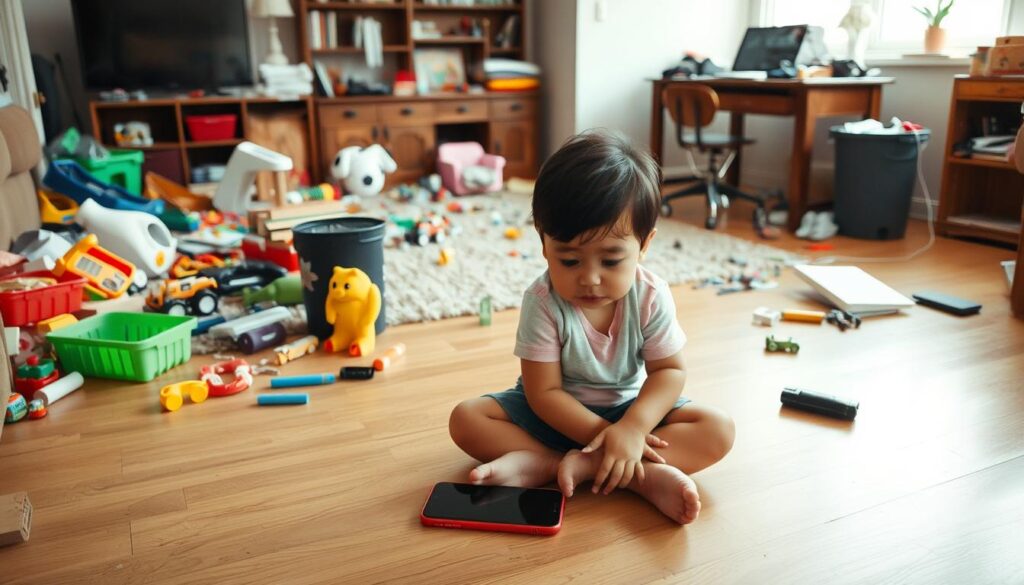
Bad parenting can harm a child’s growth and happiness. Negative parenting practices often come from a parent’s own problems, like depression or addiction. These issues can make it hard for parents to be emotionally available17. Also, not knowing how to raise a child can lead to ineffective parenting17.
The effects of bad parenting can be very serious. The Child Welfare Information Gateway says that child abuse and neglect can cause health problems like diabetes and heart disease. It can also lead to mental health issues18. The Centers for Disease Control and Prevention (CDC) also points out that bad experiences in childhood can harm a person’s health and well-being for life18.
Dysfunctional family dynamics can make bad parenting worse. People who were abused as kids may have trouble trusting others and managing their anger. This can lead them to be abusive to their own children18.
“The way we talk to our children becomes their inner voice.” – Peggy O’Mara
To stop bad parenting, parents need to be aware of their actions and willing to learn. Parenting education teaches about child development and how to communicate and discipline effectively. By getting help and learning new skills, parents can give their kids the love and support they need to succeed17.
Shaming and Negative Labeling

Shaming and negative labeling are types of emotional abuse that hurt a child’s self-image and mental health. When parents call their kids “bad” or “naughty,” it makes them feel bad about themselves. This can make them less caring towards others19. Sadly, this kind of parenting is still seen in many homes and schools, even though it’s harmful19.
Studies reveal that kids who are often shamed struggle to feel empathy and may act out aggressively or bully others1920. The pain from being shamed can last for years, affecting their self-esteem and making it hard for them to own up to their mistakes1920.
Impact on Child’s Self-perception
Kids who are shamed might lie or keep secrets to avoid more shame. This makes it hard for them to think about and change their actions20. This negative view of themselves can lead to self-doubt and low self-esteem. It makes it tough for them to have good relationships and reach their goals.
Long-term Consequences of Shaming
The lasting effects of shame-based parenting can be very bad. Kids may face mental health problems like depression, anxiety, or addiction. Parents who use these methods often do so because they feel ashamed or unsure about how to parent19. But, by changing to a more supportive and understanding approach, parents can help their kids grow emotionally healthier1920.
Poor Communication and Listening Skills

Good communication and listening are key for strong parent-child bonds. About 1.4 million kids face long-term communication issues21. Bad family talks can make kids act out, get into trouble, or use drugs22. Many parents don’t see how important language skills are for their kids21.
Talking well with kids is important for their growth21. Parents can help by making a space for real talks21. Good family talks mean listening well, showing empathy, and not making others feel ignored22.
Knowing where kids struggle with talking helps prepare for better outcomes21. Encourage them to tell stories to get better at talking21. Using lists or bullet points helps them share ideas clearly21. Talking through ideas with kids boosts their confidence and clarity21.
“The way we talk to our children becomes their inner voice.” – Peggy O’Mara
Bad family talks can make kids anxious or depressed22. Poor family talks can lead to false beliefs, worry, fear, and stress22. Kids raised badly may act out, have control issues, rebel, and struggle with friends23.
| Parenting Style | Characteristics |
|---|---|
| Authoritarian | Strict rules, cold, high expectations, ignores feelings23 |
| Permissive | Talks a lot but doesn’t listen, inconsistent, avoids conflict, gives in23 |
| Neglectful | Uninvolved, cold, doesn’t guide or care23 |
Teaching kids to talk well early on helps them later21. Bad parenting can harm kids for years, leading to bad behavior, aggression, and trouble with friends23. By using emotional validation, listening, and open talks, parents can build better family bonds and help their kids grow.
Inconsistent or Erratic Parenting
Inconsistent parenting can cause a lot of problems for kids. It leads to confusion, anxiety, and bad behavior. When parents don’t stick to rules or punish in a weird way, kids get mixed messages. This can make their behavior even worse24.
This kind of parenting can even lead to oppositional defiant disorder in some kids24.
Unpredictable Consequences
Using empty threats or not sticking to rules can have big effects. Kids of parents who don’t follow through may not take threats seriously. Teens with parents who check their online activities sometimes are more likely to bully or be bullied online24.
Unpredictable actions can also make kids more aggressive24.
Lack of Stability and Structure
Inconsistent parenting often comes from a lack of patience or being too busy. This makes it hard for kids to feel stable and secure. About 70-80% of kids with ADHD act out in unpredictable ways25.
Many parents have seen their kids act out in similar ways over the years25.
To avoid these problems, it’s key to have clear rules and be consistent. Parents should explain why they have rules and stick to them24. This helps kids feel safe and understand the world better.
| Parenting Style | Characteristics | Potential Consequences |
|---|---|---|
| Inconsistent | Erratic punishment, empty threats, lack of follow-through | Behavioral problems, aggression, oppositional defiant disorder |
| Consistent | Enforceable rules, reasoning, predictable consequences | Self-control, understanding of expectations, secure environment |
Consistency in discipline is crucial for providing children with a secure environment to understand expectations and develop self-control.
By spotting and changing inconsistent parenting, parents can create a better home for their kids. They can use positive parenting methods and get help when needed. This helps break the cycle of bad parenting and builds a supportive home.
Overprotection and Helicopter Parenting
Helicopter parenting is when parents are very involved and worry a lot about their kids. They manage their kids’ schedules and fix problems for them. This style is common among parents of teenagers and young adults2627. Even though it comes from a good place, it can harm their kids’ growth and happiness.
Parents who are too involved focus too much on their kids’ lives. This can hurt their mental health and how they see themselves26. Kids of these parents might struggle with depression and anxiety as adults27. They might not know how to handle adult problems, leading to feelings of being overwhelmed and depression28.
Several things can make parents become helicopter parents. They might worry about their kids’ success or feel guilty about their own childhood27. The media and technology also add to the worry, making parents more protective27.
Helicopter parenting can really hurt a child’s development. A study found that it makes kids less confident and less able to handle disappointment26. Kids might feel too entitled and not learn basic skills because their parents do everything for them26.
To help kids grow strong and independent, parents need to find a balance. It’s important to let kids make mistakes and not praise them too much for being perfect28. Parents should let kids struggle and learn from failure, helping them become resilient and confident26.
By avoiding the traps of helicopter parenting and finding a better balance, parents can help their kids grow. For more tips on positive parenting, talk to experts and check out parenting resources.
| Parenting Style | Characteristics | Potential Effects on Children |
|---|---|---|
| Helicopter Parenting |
|
|
| Balanced Parenting |
|
|
Effects of Bad Parenting on Children
Parents have a huge impact on how children grow up. They shape their goals, values, and mental health29. Good parenting helps kids control their emotions and learn new things30. But bad parenting can cause lasting harm.
Children need positive parenting to feel confident and solve big problems30. Bad parenting can lead to aggression, poor grades, and mental health issues29. Almost half of those with severe mental disorders started showing symptoms before 1431.
Behavioral Issues and Delinquency
Bad parenting can make kids feel entitled and take risks29. It can also make them withdraw, bully others, and lack resilience29. Harsh parenting can cause kids to act out or feel stressed30.
Emotional and Mental Health Problems
Depression in teens is linked to how supportive parents are30. Family stress can also lead to depression in kids30. Bad parenting can cause anxiety, depression, and self-harm29.
Difficulty Forming Healthy Relationships
Parenting affects kids’ mental health and relationships30. Warm and supportive parenting helps kids deal with stress and peer pressure30. Without it, forming lasting relationships can be hard for them.
To avoid these problems, parents should use positive parenting. This means talking openly, listening well, and setting clear rules in a loving home. It helps kids grow up healthy and well-adjusted29.
For more information, visit this link about the effects of poor parenting on children.
Breaking the Cycle of Bad Parenting
It’s key to spot and tackle bad parenting habits to end the cycle. Research shows that bad parenting can be passed down through generations due to trauma and abuse32. But, by getting help and support, parents can change for the better, benefiting their kids and future generations32.
Using parenting education and resources is a great way to break the cycle. The Texas Parent Helpline and WIC offer support for parents in tough situations33. Mom groups on social media and apps like Wonder Weeks also help parents keep their child’s development on track33.
Recognizing and Addressing Negative Parenting Behaviors
Self-reflection and growth are vital to spotting and fixing bad parenting habits. By looking at their own upbringing and spotting harmful patterns, parents can make a change. This often means active listening and positive talking, which are key for healthy parent-child bonds32.
Setting clear rules and expectations is also key to ending bad parenting32. A nurturing environment with consistent rules makes kids feel safe and supported. Spending quality time and giving positive feedback also strengthens the parent-child bond32.
Seeking Help and Support
Getting outside help, like therapy or parenting classes, is often needed to break the cycle32. Family therapy and counseling help parents tackle negative patterns and find better ways to cope3233. Organizations like Any Baby Can offer resources and activities to support parents in understanding and nurturing their child’s growth33.
“Seeking therapy or counseling to address negative patterns is a crucial step in breaking the cycle of bad parenting.”32
Many stories in media, like the Christmas Xfinity ad and anime, show characters making a change by being better parents than their own34. These stories show the importance of trying hard to avoid past mistakes.
| Strategy | Benefit |
|---|---|
| Parenting Education | Provides knowledge and skills to improve parenting practices |
| Family Therapy | Addresses negative patterns and promotes healthy communication |
| Support Groups | Offers peer support and shared experiences |
By spotting bad parenting, getting help, and using positive strategies, parents can change the cycle for the better32.
Positive Parenting Strategies
Positive parenting is all about being kind and encouraging good behavior. It helps build a strong bond between parents and kids. Studies show it can make kids happier, smarter, and more emotionally balanced35.
This method works from the start and gets even better as kids grow up35.
Open Communication and Active Listening
Talking openly and listening well are key in positive parenting. It lets kids share their feelings and helps parents understand them better36. This makes kids feel safe and helps them manage their emotions well36.
Consistent and Age-appropriate Discipline
Positive parenting means setting clear rules and using the right discipline for each age. It’s about being there for your child, showing them how to behave, and understanding their feelings35. For example, redirecting toddlers and explaining rules to teens are good ways to do this35.
Nurturing and Supportive Environment
A caring and supportive home is vital for good parenting. Kids raised this way tend to be happier and more confident36. But, it’s hard to find the right balance between letting them learn and keeping them safe36.
Forgiveness is also key in positive parenting. It helps families get along better36.
| Positive Parenting Strategy | Benefits |
|---|---|
| Open Communication and Active Listening | Strengthens parent-child relationship, fosters emotional well-being |
| Consistent and Age-appropriate Discipline | Sets clear boundaries, promotes learning and growth |
| Nurturing and Supportive Environment | Boosts self-esteem, happiness, and reduces bad behaviors |
Using positive parenting can be tough, but getting help from therapists can make a big difference36. By being consistent and loving, parents can help their kids grow up well and have strong relationships with them.
Importance of Self-reflection and Personal Growth
As a parent, understanding the value of self-reflection and personal growth is key. It’s a practice that has been around for thousands of years37. Today, it’s used in therapy and programs like Alcoholics Anonymous to help people change harmful behaviors37.
Studies show that reflecting on your parenting can be more helpful than just doing more tasks. This is true for musicians, office workers, and parents alike38. Reflective parenting helps reinforce good behaviors, reduces bad ones, and fosters compassion, as Psychology Today noted in February 201738.
Self-reflection helps you evaluate important areas of life like relationships, health, finances, and work-life balance37. It also improves relationships by helping you understand behavior, communication, and emotional responses37. Looking back on past successes can also help you deal with tough times better37.
“The unexamined life is not worth living.” – Socrates
Building self-awareness and improving your emotional intelligence are crucial steps. They help you break negative patterns and create a better family environment. The Powerful Role of Reflection in Activating Behavior Change (December 2021) highlights reflection’s role in positive change38.
| Self-reflection Technique | Benefit |
|---|---|
| Journaling | Organizes thoughts and feelings |
| Mindfulness Meditation | Increases self-awareness and emotional regulation |
| Guided Self-reflection Questions | Prompts deeper introspection |
An article by Happy Minds Psychology in April 2024 shows how parenting mirrors our upbringing. It stresses the need to understand our backgrounds in parenting38. Through self-reflection and personal development, you can overcome negative parenting habits and be the best parent you can be.
Conclusion
It’s key to spot and steer clear of bad parenting habits to keep parent-child bonds strong and kids happy. Kids who face neglect, abuse, or mixed signals from their caregivers might struggle with low self-esteem, depression, anxiety, or PTSD39. Also, kids who often hear yelling from their parents might grow up with mood issues or act out in ways that are not good40.
Using positive parenting methods like talking openly, listening well, setting clear rules, and being supportive can help. This approach can help families build strong, healthy relationships.
Parents should take time to think about their own actions and grow as individuals. Getting help when needed is vital because bad parenting can lead to a cycle of harm39. Talking things over with your child after making a mistake can help them feel better and more connected40.
By focusing on positive parenting and your child’s happiness, you lay a solid base for their growth. Remember, being a good parent isn’t about being perfect. It’s about being “good enough” and knowing how to fix mistakes40. With effort and dedication to positive parenting, families can move past bad habits and build a better future for their kids.
FAQ
What are the signs of bad parenting?
How can bad parenting affect children?
What is the difference between a clinical and comprehensive definition of bad parenting?
What are the most severe forms of bad parenting?
How can overly strict parenting impact children?
What are the consequences of lack of discipline and boundaries in parenting?
How can parents break the cycle of bad parenting?
What are some positive parenting strategies?
Source Links
- Bad Parenting: Signs, Effects, and How to Change It
- 7 Signs Of Bad Parenting
- Bad Parenting Signs and Its Impact on Children
- What Does Bad Parenting Look Like? – The Impactful Parent
- Bad Parenting and Its Effect on Children
- Child Abuse and Neglect – HelpGuide.org
- Neglect
- Strict Parenting: Benefits and Risks
- Strict Parents – 10 Signs & What’s Wrong With Them
- Parenting in the Middle: Not Too Strict, Not Too Lenient – Feeding the Soil
- Parenting: Threats VS. Boundaries, Limits, and Consequences
- Parental Consistency Is So Important – Parenting Today’s Teens
- “If you prioritize other aspects of your life instead of spending time with your children, they…
- 10 Ways Well-Meaning Parents Can Emotionally Neglect Their Children
- Passive Emotional Neglect Vs. Active Emotional Invalidation: 5 Examples and 5 Effects
- Emotional Neglect and Emotional Invalidation Aren’t the Same
- Good vs Bad Parents: Where The Differences Lies?
- How to Be a Good Parent After a Bad Childhood
- The Peaceful Home X: Parenting, shame, and raising wholehearted + resilient children
- How to Avoid Shaming Your Child – And Keep Strong, Loving Boundaries – Hey Sigmund
- Roughly 1.4
- The Effects of Poor Family Communication
- Negative Parenting Styles: Signs and Effects on Kids
- 5 Types Of Inconsistent Parenting And How To Prevent It
- Raising the Consistently Inconsistent Kid
- Are You a Helicopter Parent? Here’s How the Parenting Style Can Affect Kids
- Helicopter Parents’ Psychology: The Overprotective Parent
- What’s Wrong With Helicopter Parenting? – Child Mind Institute
- What Does Bad Parenting Look Like?
- The Effect of Parenting and the Parent-Child Relationship on a Child’s Cognitive Development: A Literature Review
- Relation of Positive and Negative Parenting to Children’s Depressive Symptoms
- How to Break the Cycle of Bad Parenting and Raise Happy, Healthy Kids
- Breaking the Cycle with Positive Parenting – Parents – Relationships – GetParentingTips.com
- Breaking the Cycle of Bad Parenting – TV Tropes
- 11 Positive Parenting Strategies You Need to Start Using
- What Are Tips for Positive Parenting? – Dana Behavioral Health
- Why Is Self-Reflection Important For Personal Growth? – Bene by Nina
- A Guide to Self-Reflection in Parenting
- 9 Most Dangerous Effects of Poor Parenting
- The powerful approach that will get your parenting back on track

